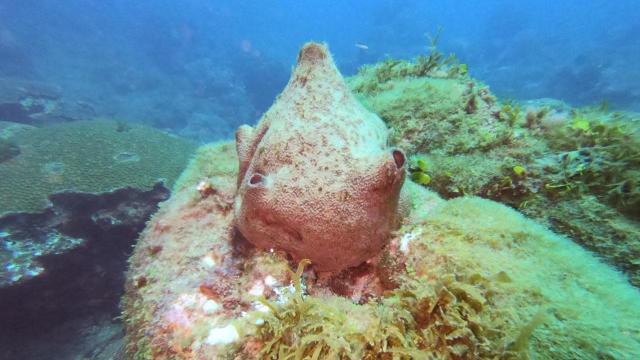In the Gulf of Mexico, scientists have found five new coral reefs forming a so-called coral reef corridor. The team of scientists from the University of Veracruz and Mexico’s National Institute of Technology announced their findings earlier this month, reminding us there’s still so much we don’t know about the underwater world.
The five coral reefs — Corazones, Pantepec South, Piedras Altas, Los Gallos, and Camaronera — join a number of other reefs to make up the Reef Corridor of the Southwest Gulf of Mexico, which stretches from near the Tamiahua Lagoonin the state of Veracruz into the Gulf. The scientists have speculated about the existence of the corridor for years, and this discovery confirms it. This corridor stretches at least 499km, said Leonardo Ortiz Lozano, a researcher with the University of Veracruz who made the discovery alongside Ana Gutierrez of the National Institute of Technology.
This corridor offers incredible biological productivity for this region, Ortiz told Gizmodo. The reefs offer habitat for a number of species, fuelling an incredibly biodiverse ecosystem. The region is currently unprotected, bu the scientists who discovered the corridor want to change that before the oil and gas industry moves into this part of the Gulf.
“We want the coral corridor to be officially recognised to protect it from the fossil fuel industry,” Ortiz said.
This group of researchers is now working to protect the corridor in coordination with the Mexican Center for Environmental Law. The fishing industry and sedimentation from runoff are threatening the reefs, but the ecologists are mindful about creating protections that won’t sacrifice the well-being of the fishing industry that’s built a dependence on the thriving ecosystem, which includes sponges, crustaceans, sea turtles, and sharks.
“What’s most important is that these sites are where hundreds of fishermen receive their nourishment and work,” Ortiz told Gizmodo. “It’s important to protect these sites, but it’s necessary to maintain the fishing industry.”
And of course the threat of climate change is looming over coral reefs, many of which are already feeling its impacts around the world. Warmer waters have caused waves of coral bleaching in the Gulf of Mexico. When corals bleach, they expel algae (a main source of food) as a response to the added stress. In other words, they essentially die.
Currently, these new reefs are scattered within and outside of protected areas. Setting up protections for all the reefs is a solid first step to ensuring they survive.
